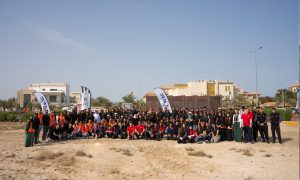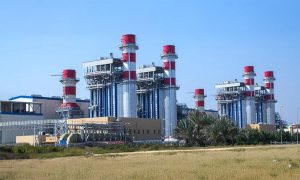GCC skills shortage needs more investment in education
Corporate participation needed in education, experts say at World Engineering Education Forum

The GCC has a dire need for more government investment and corporate participation in its education sector to address skills shortages in industries like construction, academics say.
“Today, public spending on education in many countries in the region remains below 3% of GDP,” said Elias Bou Saab, Lebanon Minister of Education and Executive Vice President of the American University in Dubai (AUD).
“It should be our priority to allocate more resources to K-12 schools and higher education institutions to ensure a competitive edge for our future generations,” Saab added, addressing an audience at the World Engineering Education Forum (WEEF) 2014, held in the Dubai International Convention and Exhibition Centre.
“Education is something that is fundamental, and investing more in it is certainly needed,” said Dr. Alaa Ashmawy, Dean and Professor of Civil Engineering at AUD.
Apart from government spending, Ashmawy also called for the corporate world to play a more active role in the education sector in order to address the skills shortage in the workforce, particularly for construction.
“If companies can partner with universities to make sure that we have programs that serve the construction sector and for the construction sector to feed talent into the university, we’re going to break that barrier,” Ashmawy told Big Project ME.
“The challenge right now is that a lot of the construction companies, they would recruit talent from overseas. They don’t want to spend time educating engineers on their workforce. They’d rather import them. It is a challenge,” he said.
However, he said that firms are gradually taking note.
“It is changing and we’re seeing more and more companies but it requires a lot of effort on both parts. But we’re working on this and we’re seeing the change. We’re seeing a change in the landscape,” he said.
“A lot of companies now are more aware of the need to invest in local talent, the need to train the local workforce, because the problems are different. You can get the best engineers from Canada and Australia and Russia but they will not be able to solve the problems that are pervasive in the region here.” Ashmawy added.
Although AUD and other universities offer construction management programs, universities struggle to find the right students too, he pointed out.
“The key challenge is on the students’ side, trying to juggle their schedules and their priorities. A lot of people come here with the intent to work and earn a living and are under a lot of stress in terms of time. And so it is a challenge for many universities in the region here trying to recruit students who are willing to learn,” he said.
Another issue universities have to cope with is keeping pace with rapid advances in technology, said Dr. Hans Hoyer, Executive Secretary of the Global Engineering Deans Council. Hoyer blamed this on the tenure system in place in universities, which may lead professors to become complacent about teaching methods and not stay up-to-date with changing technologies.
“Many faculty members have never worked with industry. They live in an ivory tower. They don’t know the new technologies, they don’t effectively introduce the new technologies, [and] they lose their students because they do traditional lecturing,” Hoyer said.
“The new generation will be much more agile, much more competent to use the new technologies that my generation is having great difficulty adjusting to,” he added.
Additionally, it is crucial to ensure that future engineers are equipped with more than just technical know-how for today’s marketplace, experts at the conference said.
“We must encourage our students to develop soft skills along with their technical knowledge to ensure a competitive edge at the global level,” Saab said.
Hoyer echoed the minister’s comments.
“There’s a tremendous discussion going on globally, focusing on what’s being called the attributes of a global engineer,” Hoyer told Big Project ME.
“So to be a global engineer effective in different environments requires more than simply the narrow technical expertise. It needs you to be able to work in multicultural teams, you need to have business skills, you need to have communication skills, and hopefully also more than one or two languages, skills that go beyond the technical,” he added.























